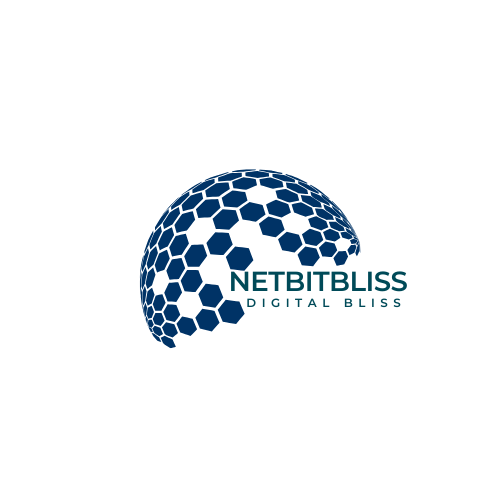
Introduction
With Google’s algorithms constantly evolving, businesses must stay ahead by implementing the latest SEO strategies to maintain top rankings. In 2025, SEO will be more sophisticated, focusing on user experience, AI-driven optimization, and high-quality content.
Looking for expert SEO services? Contact NetBitBliss.com for customized SEO solutions!
This guide explores the most effective SEO strategies for 2025 to help you outrank competitors and dominate Google’s search results.
Why SEO Matters More Than Ever in 2025
SEO is crucial in 2025 as Google’s AI-driven algorithms prioritize user experience, Core Web Vitals, and intent-based searches. With increasing voice search, AI content optimization, and mobile-first indexing, businesses must adapt to stay visible. High-quality backlinks, E-A-T (Expertise, Authority, Trustworthiness), and structured data are key to dominating rankings. As competition grows, leveraging AI-powered SEO tools, local SEO, and featured snippets enhances visibility.
Optimizing for semantic keywords, fast-loading websites, and engaging content ensures higher traffic and conversions. Stay ahead with cutting-edge SEO strategies to grow your online presence.
1. Google’s AI and Machine Learning Algorithms
Google’s AI-driven algorithms like RankBrain and BERT are improving search relevance. Websites optimized for user intent and natural language processing (NLP) will perform better.
2. Voice Search and Conversational SEO
With 50% of online searches being voice-based, optimizing for voice search SEO is essential. Using long-tail keywords and conversational content will help rank higher in voice queries.
3. Core Web Vitals and Page Experience Update
Google’s Core Web Vitals emphasize page speed, interactivity, and visual stability. A website with a seamless user experience (UX) will rank higher.
Top SEO Strategies for 2025
1. Optimize for Google’s AI and RankBrain
Google’s RankBrain understands search intent better than ever. To rank higher:
- Create high-quality, informative content.
- Use semantic keywords to improve relevance.
- Optimize for user intent-based search queries.
2. Focus on E-A-T (Expertise, Authority, Trustworthiness)
Google prioritizes sites with strong E-A-T signals. Improve your website’s credibility and trustworthiness by:
- Publishing well-researched, expert-written content.
- Building high-authority backlinks.
- Displaying author credentials and trust signals.
3. AI-Powered SEO and Automation
AI tools streamline SEO efforts by analyzing search trends and optimizing content. Use AI-driven platforms like:
- SurferSEO for content optimization.
- SEMrush & Ahrefs for keyword research.
- Clearscope & MarketMuse for content relevance.
4. Content Optimization for Featured Snippets
Featured snippets are the #1 ranking spot on Google. To optimize:
- Structure content with question-based headings.
- Provide concise, direct answers.
- Use bullet points and numbered lists.
5. Voice Search Optimization
To rank for voice search queries, optimize content by:
- Using natural language and conversational keywords.
- Answering direct, question-based search queries.
- Implementing FAQ schema markup.
6. Mobile-First Indexing & Responsive Design
Since Google follows a mobile-first indexing approach, ensure your website is:
- Fully responsive on all devices.
- Optimized for fast loading speed on mobile.
- Uses a clean and user-friendly mobile UX.
7. Page Speed Optimization & Core Web Vitals
Faster websites improve SEO rankings and user experience. Boost your page speed by:
- Compressing images using WebP format.
- Implementing lazy loading for media files.
- Using CDN (Content Delivery Network) for faster delivery.
8. High-Quality Link Building Strategies
Backlinks remain a top ranking factor. Build high-quality links by:
- Guest posting on authority websites.
- Creating linkable content assets like infographics.
- Earning backlinks through digital PR and influencer outreach.
9. Schema Markup & Structured Data
Schema markup helps search engines understand your content. Use structured data for:
- Rich snippets (reviews, FAQs, how-to guides).
- Local SEO (Google My Business optimization).
- Product and service descriptions.
10. Local SEO Optimization
For businesses targeting local customers, optimize for Google My Business (GMB) and local searches by:
- Maintaining an updated GMB profile.
- Collecting customer reviews and ratings.
- Using local keywords and location-based content.
Conclusion
SEO in 2025 is all about AI-driven strategies, user intent optimization, and content quality. By focusing on Google’s evolving algorithms, Core Web Vitals, and voice search, businesses can dominate search rankings and increase organic traffic.
Implement these SEO strategies today and stay ahead of the competition!

